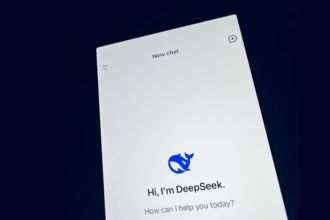Mustafa Suleyman talks about the direction of artificial intelligence, privacy issues, and the changing function of AI helpers in daily life
Mustafa Suleyman, Microsoft’s head of artificial intelligence (AI), predicts that “perfect long-term memory” artificial intelligence (AI) assistants will become accessible within the following year. Suleyman described how these sophisticated AI tools—which can recall discussions, projects, and issues—will inspire consumers to spend more time with them and disclose their backgrounds.
“I believe we are entering a fundamentally new age whereby your daily life will be accompanied by always present, relentless, very capable co-pilot companions,” Suleyman added.
How Will AI Become Deeply Embedded in Our Lives?
Advocates of artificial intelligence contend that these technologies must be firmly ingrained in our daily lives if they are to be valuable. AI assistants will be successful only when they know the background and context of their assigned jobs.
An AI-powered diary manager, for instance, would require access to your calendar, editing capability, and memory to store details on your events. Although this degree of access has generated controversy, Suleyman argued that society’s privacy standards have changed with time.
Suleyman said, citing the rising usage of gadgets such as TVs, computers, phones, in-car cameras, and earbuds that continually record daily situations, changing many people’s privacy expectations.
Apple’s Live View function, which records video and audio concurrently when an iPhone takes a picture, was one particularly noteworthy example he mentioned. Most folks appreciate that feature, he remarked. “Some people turn it off, but that’s a very clear change in the default expectation of what a photo is.”
What Are the Privacy and Trust Concerns?
Critics of these artificial intelligence products have expressed severe worries about privacy, data security, and the likelihood of AI assistants providing erroneous advice or showing prejudice notwithstanding their promises. Embedded in daily activities, AI systems must manage personal data securely to prevent leaks and abuse.
Suleyman noted these issues but underlined the need for trust and control in deciding whether people will welcome such technology. “Whether people felt they could control their use of it, whether they trusted the provider of it, and so on are crucial determinants of whether or not to embrace this type of tech,” he added.
A significant participant in the AI scene with billions spent in OpenAI—the developer of ChatGPT—Microsoft has unveiled a suite of fresh AI capabilities via its CoPilot assistant tool. These comprise speech capabilities, a daily news digest, and a slower, more reflective Think Deeper chatbot to answer more complex inquiries.
How Is AI Adoption Being Received?
Although artificial intelligence has been the most rapidly expanding and most often used technology in history, its appeal still has restrictions. According to a survey, barely 2% of the UK population utilized ChatGPT daily, and just 29% had tried it.
Suleyman acknowledged that consumer artificial intelligence products would not reach the same worldwide penetration as smartphones, held by around 90% of the world’s population. “Maybe this is different from the smartphone,” he remarked. “Maybe half will refuse AI tools.”
Still, Suleyman remained hopeful about artificial intelligence’s direction, pointing out its fast acceptance and value. “We are generating zero marginal cost, personalized, interactive knowledge right at your hands,” he said.
He discounted worries expressed by business leaders drawing comparisons between artificial intelligence and other innovation booms. “The idea that this could be a bubble is absolutely beyond me,” Suleyman said, citing an instance of a lady starting a business under the direction of his AI-powered chatbot, Pi.
How Is Microsoft Handling Privacy Backlash?
Microsoft has experienced privacy-related issues even as it keeps introducing artificial intelligence technologies. One such incident happened last summer when the corporation stopped releasing its Recall AI product. Designed to capture screenshots every few seconds to assist users in remembering past chores or online sites, Recall drew criticism from privacy advocates. It spurred questions from the UK data watchdog.
Regarding privacy issues, Microsoft has included further protections in its artificial intelligence products. For instance, CoPilot Vision, included in its Edge web browser, can track web pages and help consumers with online chores. Suleyman underlined that Vision would close after every browser session, must be actively triggered, and would not record or keep data. The corporation has also restricted the program’s domains and has not stated any official release date.
What Does the Future Hold for AI?
Microsoft is leading the way as the AI revolution unfolds by juggling privacy issues with innovation. Suleyman is sure that for most users, the advantages of artificial intelligence will exceed the hazards, even if some people are still cautious about its intense penetration into daily life.
Suleyman said, “We are poised for something transforming.” “AI will become a trusted friend helping us negotiate our complicated life, but only if we can build trust and guarantee people feel in control of their data.”
Microsoft and other digital behemoths are rushing to determine the future of human interaction with technology as AI helpers are positioned to provide hitherto unheard-of degrees of personalizing and engagement. Though their possible influence on society is now indisputable, it remains to be seen if artificial intelligence products will become as widespread as cell phones or remain a specialized utility for some people.








